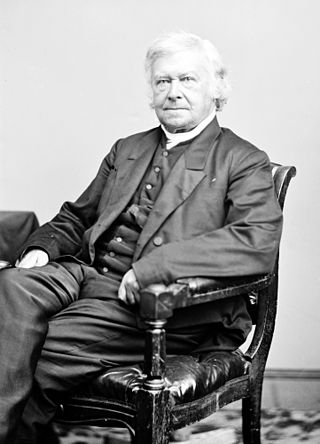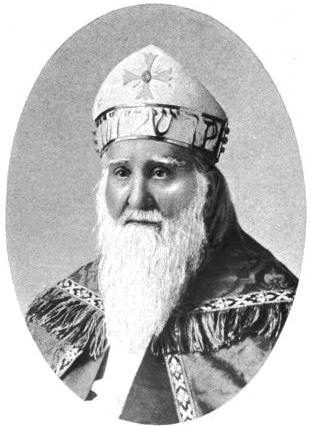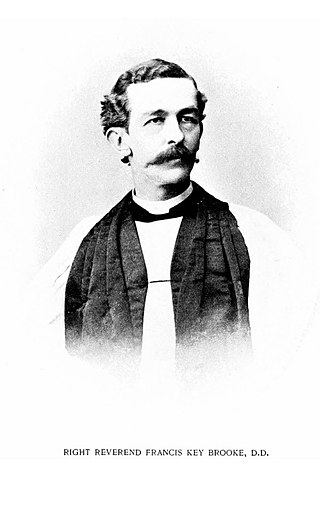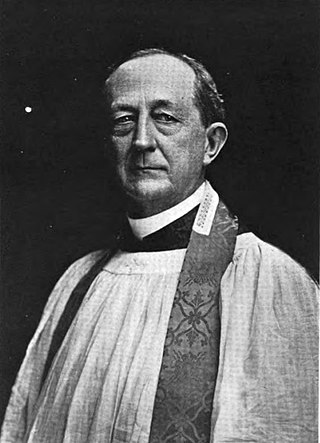Ordained ministry
Dunlop was ordained deacon on December 4, 1854, in Palmyra, Missouri, and later priest on August 7, 1856, in St John's Church in St. Louis, Missouri, both by Bishop Cicero Stephens Hawks of Missouri. He served as missionary deacon in St. Charles, Missouri, between 1854 and 1856. Later he became rector of Christ Church in Lexington, Missouri, and in 1864 rector of Grace Church in Kirkwood, Missouri, till 1880. He also served as dean of the St Louis Convocation of the Diocese of Missouri and deputy to the General Convention of 1871, 1877 and 1880.

Jackson Kemper in 1835 became the first missionary bishop of the Episcopal Church in the United States of America. Especially known for his work with Native American peoples, he also founded parishes in what in his youth was considered the Northwest Territory and later became known as the "Old Northwest", hence one appellation as bishop of the "Whole Northwest". Bishop Kemper founded Nashotah House and Racine College in Wisconsin, and from 1859 until his death served as the first bishop of the Diocese of Wisconsin.
John Moore Walker, Jr. was the 3rd bishop in the Episcopal Diocese of Atlanta, and was the 1st bishop born in the state of Georgia to a bishop in the state of Georgia.

The Episcopal Diocese of the Rio Grande is the Episcopal Church's diocese in New Mexico and southwest Texas, the portion of the state west of the Pecos River, including the counties of El Paso, Reeves, Culberson, Jeff Davis, Brewster, Presidio, Terrell, Hudspeth and Pecos. The total area of the diocese is 153,394 square miles (397,290 km2). According to the 2006 parochial report, there are 57 active congregations within the diocese. The see is based in Albuquerque, New Mexico and the diocesan cathedral is the Cathedral Church of St. John.

Alfred Lee was an American Episcopal bishop. He was born in Cambridge, Massachusetts, graduated from Harvard in 1827, and after three years practicing law in New London, Connecticut, he studied for the ministry, graduating from the General Theological Seminary, New York, in 1837. He was rector of Calvary Church, in Rockdale, Pa., from 1838 to 1841, when he was chosen as the first Bishop of Delaware. In 1842 he also became rector of St. Andrew's, Wilmington. He was a member of the American Committee for the Revision of the New Testament (1881). In 1884 he succeeded Bishop Smith as presiding bishop of the Episcopal church.

The Episcopal Diocese of Nebraska is the diocese of the Episcopal Church in the United States of America with jurisdiction over the state of Nebraska. It is in Province VI. Its cathedral, Trinity Episcopal Cathedral, is in Omaha, as are the diocese's offices. As of 2019, the diocese contains 52 congregations and 7,096 members. Average Sunday attendance is approximately 2,418 across the diocese.

Hugh Miller Thompson was the second Bishop of Mississippi.

Cicero Stephens Hawks was the first Episcopal bishop of Missouri.

John Franklin Spalding was a missionary bishop of the Episcopal Church in the United States. He served as Bishop of Colorado, first as missionary and later as diocesan, between 1873 and 1902.

Joseph Cruikshank Talbot was the missionary bishop of the Northwest and the third bishop of the Episcopal Diocese of Indiana.

Henry Niles Pierce was the diocesan bishop of Arkansas in the Episcopal Church from 1870 until his death in 1899.

Abiel Leonard was a missionary bishop of the district of Episcopal Diocese of Utah and Episcopal Diocese of Nevada, serving from 1888 to 1903.

William Forbes Adams was bishop of the Episcopal Diocese of Easton. He also served as a missionary bishop of Arizona and New Mexico.

Thomas Alfred Starkey was bishop of the Episcopal Diocese of Newark from 1880 to 1903.
James Moss Stoney III was an Episcopal prelate who served as Bishop of New Mexico and Southwest Texas from 1942 to 1956.

Francis Key Brooke was a missionary bishop of what is now the Episcopal Diocese of Oklahoma, serving from 1893 to 1918.

Arthur Llewellyn Williams was the third diocesan bishop of Nebraska in The Episcopal Church.

James Ridout Winchester was bishop of the Episcopal Diocese of Arkansas, serving from 1912 to 1931, succeeding William Montgomery Brown.

Walter Mitchell was the Bishop of Arizona in The Episcopal Church in the United States from 1926 until 1946.
John Chanler White was the fourth bishop of the Diocese of Springfield in The Episcopal Church from 1924 to 1947, having previously served as archdeacon and missionary.
Chauncey Colton was an educator, author and clergyman.
This page is based on this
Wikipedia article Text is available under the
CC BY-SA 4.0 license; additional terms may apply.
Images, videos and audio are available under their respective licenses.
















